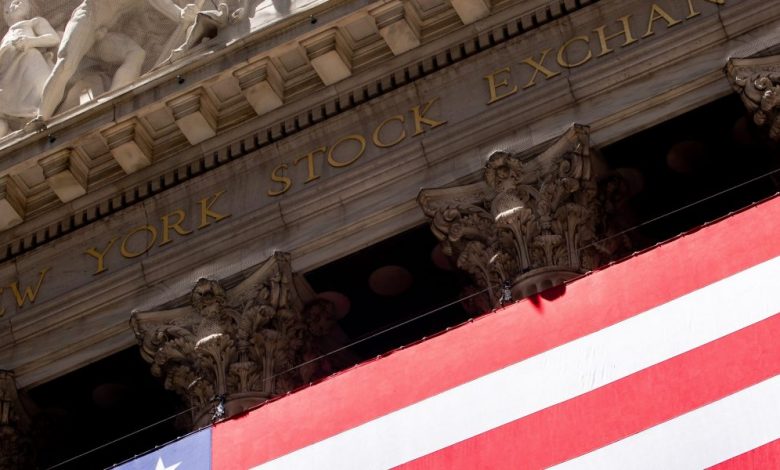Blowout retail sales make stocks tick higher

Stocks ticked higher on Wall Street on Wednesday as hopes of a resilient economy met worries over inflation after US retail sales came in much stronger than expected.
The S&P 500 rose 0.3% after pivoting from early losses to gains during the day. The Dow Jones Industrial Average rose 38 points, or 0.1%, while the Nasdaq Composite was up 0.9%.
Sales at US retailers rose more-than-expected last month even as shoppers struggled with higher interest rates on credit cards and other loans. The surprising strength gives hope that the most important part of the US economy, consumer spending, can stay afloat despite concerns about a possible looming recession. It’s the latest data showing the economy remains more resilient than feared.
At the same time, however, the heavy buying may be fueling inflation, which is slowing less-than-expected, according to a report earlier this week. Upward pressure on inflation could force the US Federal Reserve to remain more aggressive and keep interest rates high.
High interest rates can lower inflation, but they also weigh on asset prices and increase the risk of a painful recession.
“Will it be this traditional recession or a shallow recession, or will we get through it and have stronger growth that’s still at high rates?” asked Tom Hainlin, national investment strategist at US Bank Wealth Management. “That’s still the unknown of how resilient the consumer can be in this environment of higher interest rates for longer periods of time.”
“It seems like both consumers and American businesses came here in pretty good shape and are holding up well so far,” he said.
Concerns about higher interest rates and a tighter Fed were most evident in the bond market, where Treasury yields have jumped since a report two Fridays ago showed US jobs remain stronger than expected.
The two-year Treasury yield, which is trending in line with expectations for the Fed, briefly jumped to 4.70% and its highest level since November after the retail sales report, from less than 4.60% overnight and from 4.62% late Tuesday . It then went back down to 4.60%.
The 10-year yield, which helps set interest rates on mortgages and other major loans, rose to 3.79% from 3.75% late Tuesday.
After slightly higher-than-expected inflation data on Tuesday, economists at Deutsche Bank have raised their forecast of how much the Fed will raise its key overnight interest rate. You can now see that it will ultimately rise to 5.6% from its previous forecast of 5.1%.
The Fed has already raised its federal funds rate to a range of 4.50% to 4.75% from practically zero a year ago.
Deutsche Bank economists said they still expect a recession, but that near-term strength in the economy could push its timing to the final three months of the year, later than they originally thought.
Many other traders have also raised their forecasts of how high the Fed will eventually charge rates. They’ve also sharply reduced bets on the Fed cutting rates later this year.
Still, despite recent swings, stocks are holding on to healthy gains for the year. The S&P 500 is up 8% as strong data fuel hopes the economy can avoid a recession. Or, if you hit, it might just be a short and flat one.
The next big milestone for the market is likely to be the Fed meeting in late March, when policymakers will provide their latest forecasts for year-end interest rates, Hainlin said. That could mean choppy trading in the markets until then as investors try to guess which way things are headed.
On Wall Street, Airbnb shares rose 13.4% on Wednesday after reporting stronger earnings and revenue than analysts had expected for the most recent quarter. It also said trends remain encouraging into the new year and it gave a sales forecast that beat Wall Street’s.
On the downside were energy producer stocks, which fell 1.8%, easily the worst-performing of the 11 sectors that make up the S&P 500.
One of the biggest falls came from Devon Energy, which fell 10.5% after reporting weaker-than-expected earnings for the most recent quarter.
This earnings season has been muted as many companies reported their earnings are being squeezed by higher costs and interest rates.
Overall, the S&P 500 gained 11.47 points to 4,417.60. The Dow rose 38.78 to 34,128.05 and the Nasdaq climbed 110.45 to 12,070.59.
In equity markets overseas, Turkey’s market rose nearly 10% after trading reopened after a shutdown caused by the region’s devastating earthquake.
Learn how to navigate and build trust in your organization with The Trust Factor, a weekly newsletter exploring what leaders need to succeed. Login here.



